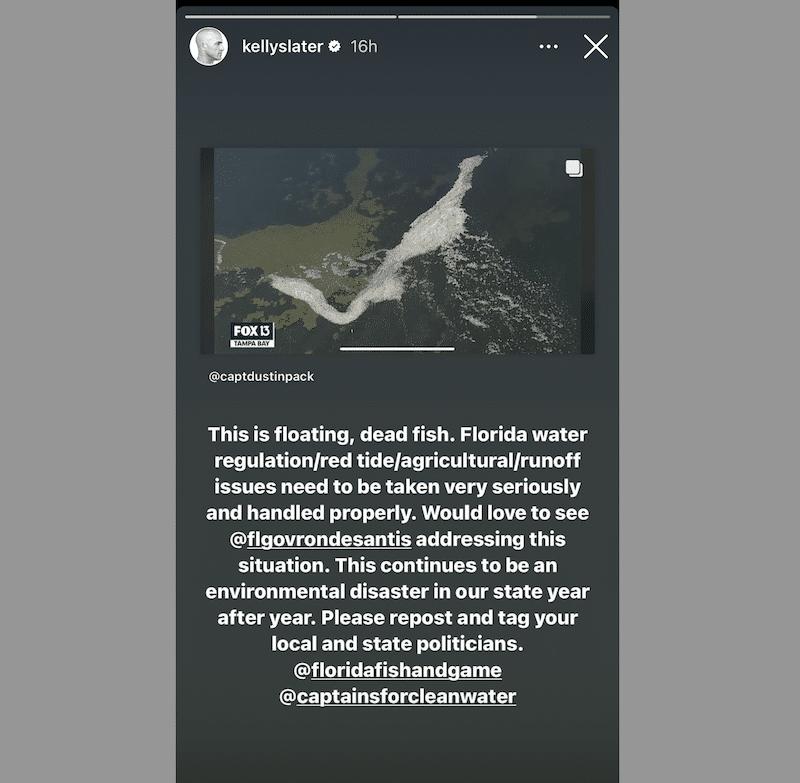We are all dumb now.
Back in December, the Arena Group purchased a portfolio of magazine titles for $28.5 million. The self-described “tech-powered media company” owns more than 240 brands including Sports Illustrated.
Still not clear who the Arena Group is? Let’s turn to the press release.
“The Arena Group creates robust digital destinations that delight consumers with powerful journalism and news about the things they love.”
I did not make that up, but an AI bot probably did. More on that, in a moment.
The sale included the tattered remains of Surfer Magazine. By December 2022, Surfer had dwindled to a zombie publication maintained by a single editor. Gone were the heady days of the 1980s and 1990s, when cash from the surfwear brands flowed like water and the magazine set the narrative — for better and often worse — of surfing culture.
How many teenaged surfers read the magazine and dreamed of stardom — or of hot girls and getting barreled somewhere beautiful and tropical? Far too many, probably. But there are worse dreams to have, after all.
Honestly, I had mostly forgotten about Surfer’s fate and the Arena Group. I think that might have been the best outcome, in fact. In the current era, publishing is depressing and terrible most of the time, and thinking about all the dead publications we used to love is not that fun.
As it turned out, Surfer was not gone forever.
In March, the Arena Group hired Emily Morgan, a Tennessee-based writer to generate trending news for the website. It was alive! The zombie publication had returned to life and it was coming for our brains. Quite literally, it seemed.
Certainly, the Emily Morgan phenomenon confounded us.
The stories published under her byline read like the games that by now we’ve all played with ChatGPT. They sounded almost human, but not quite. Was it a human writer using AI tools? Or pure robot? It was impossible to tell, for sure.
And then, there was the whole Tennessee question.
If the publisher had created a fake writer bio, why wasn’t it a bro from San Clemente? Surely, that would have sounded more authentic and have earned a higher ranking from the search engines, which used to care about expert knowledge. Maybe we’ve moved on from that stage, to a new, shittier stage of search engine optimizing. I must have missed the memo.
On March 9, Emily’s stories suddenly stopped. Just as quickly as they had appeared, they were gone.
Whatever experiment Arena was running with Surfer’s website had apparently ended, leaving us to wonder exactly what had happened.
By all indications, Emily is a real person. And to me, that might be the most depressing element of this whole dystopian tale.
Imagine you went to college for four years, worked at your student newspaper, and got your degree. Imagine you got straight A’s in your major, because you believed that would make you successful in the future. Imagine you wanted to work in media when you grew up, maybe as a reporter at a newspaper.
Or better yet, you were going to write features for magazines. Long ones about important people. Maybe you once read Gay Talese’s “Frank Sinatra has a Cold” or Joan Didion’s “Why I Write” and felt a bolt of recognition. This, this was what you wanted to do with your life.
Then you get a job at Surfer Magazine. You’ve never been surfing, but it looks so cool. If you work for the magazine long enough, hopefully you’ll get to go to California someday and try it out.
You picture yourself in Hawaii watching beautifully tanned surfers ride giant blue waves. You see yourself at San Onofre, where you’ve somehow instantly become a graceful and accomplished longboarder.
Instead, your job looks nothing like any of these things. Using AI tools, you scrape social media for trending news. Then using another tool, trained on Surfer’s legacy digital content, you produce a story. You do that many times each day.
You never talk to another person, never go anywhere, never learn to noseride at San-O. Your job is to punch the buttons to create the content that feeds the search engine bots that crawl the internet all day, every day. Eventually, it would have to start to feel like you were becoming one of the bots, yourself.
I should tell you, that I have written trending news stories. Quick-turn and driven by social media trends, these things are not profound journalism, by any means. But at the time I did them, I could actually write them using my dumb human brain.
And occasionally, I was allowed to make them funny. My editor at the time had a dry Midwestern sense of humor and liked taking subtle digs at famous people. Within the confines of the format, we had fun.
My stories were syndicated out over channels such as Apple News and fed to the bots over at Google. The publication earned from pageviews and display ads and from the syndication channels. I got a check in the mail. It was not a bad way to spend a morning at the coffee shop, and keep the lights on, while I pitched the stories I wanted to do.
In February, Arena Group announced new strategic partnerships with two AI firms, Jasper and Nota.
“While AI will never replace journalism, reporting, or crafting and editing a story, rapidly improving AI technologies can create enterprise value for our brands and partners,” says Ross Levinsohn, Chairman and CEO of The Arena Group, in a story for Business Wire.
An AI-driven copywriter, Jasper promises to “streamline your workflow” and help you “breakthrough your writer’s block.” Jasper can generate 1000 words at a time — which amusingly, it refers to as “longform” — and promises clever captions for all your Instagram posts. Nota, meanwhile, is an AI engine designed for video content.
And they didn’t just invest in these tools.
According to Business Wire, Arena ran a pilot program focused on Men’s Journal, and specifically its archive of fitness content. They used the publication’s archive to train the AI. Then human editors directed the bot to generate new stories based on the information the AI bot had absorbed.
This process “increased workflow efficiencies by more than 10 times,” says Business Wire.
Weirdly, it turns out that the machines write faster than humans like me. If you knew how many times Derek has nagged me for this story, you would not be at all be surprised by this news.
Back in December when the Arena Group bought Surfer, many of my friends in media scratched their heads. Why would anyone pay that much money for a collection of websites generally valued at next-to-nothing? It seemed like the weirdest of all possible plays.
Now, the answer looks more clear. Surfer’s website has a deep digital archive of expert knowledge about surfing. For a brand invested in AI, that digital archive is worth gold.
Train the AI on old Surfer Magazine stories, and generate fresh, trending news. And the site’s status as an expert source helps ensure that those new stories, no matter how low-quality get VIP treatment from the search engines.
And better yet, those stories will appear ten-times faster than the old way, where easily distracted humans like me sat in front of our keyboards, scrolled through Instagram, wrote 50 words, made another espresso, wrote 50 more words — well, maybe that’s just me. I’m sure other writers just like, get on with it, and put words on the screen.
Over the weekend, David Roth published an essay at Defector, “The Limits of the Billionaire Imagination are Everyone’s Problem.”
Roth’s piece is a scathing account of how the whims of the contemporary billionaire class and their near-boundless efforts to extract value are steadily smashing the creativity out of well, just about everything.
As humans, story-telling is one of our most ancient traditions. We drew on cave walls, wrote on papyrus rolls, and scribbled illegibly on parchments and yellow legal pads. Now we tap out our Instagram captions and text messages. The medium doesn’t matter that much.
It feels like the deepest cut to replace this profoundly human process with a machine trained on the work of so many human writers. Who are we, if not our stories? And who do we become in their absence? What’s lost in this dystopian world of trained robots and hyper-efficient editors? Certainly what’s left starts to feel a lot like Roth’s “claustrophobic and airless culture.”
Surfing is nothing without its stories.
At times, it can feel like the stories are as important as the thing itself. Sitting around campfires and hanging out in parking lots, we talk of that one perfect day, that probably wasn’t all that perfect at all. But we were there, we experienced it, and we’ve come here to tell of it.
There is then, something beautifully, magically, and fundamentally human about telling stories. Dumb stories, true stories, completely fake and made-up stories — what matters is that they belong to us. In the telling, we spin another thread and add to the ties that connect us to one another.
And isn’t that elusive connection what we’re all here to find?











